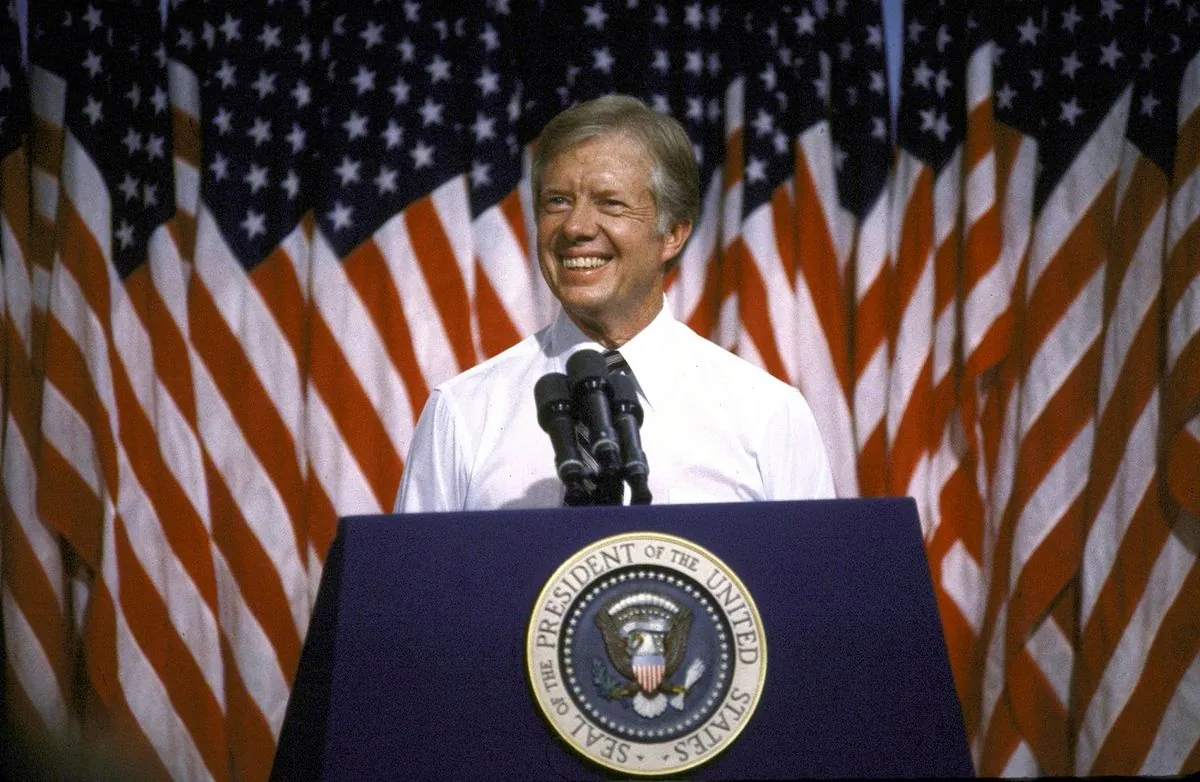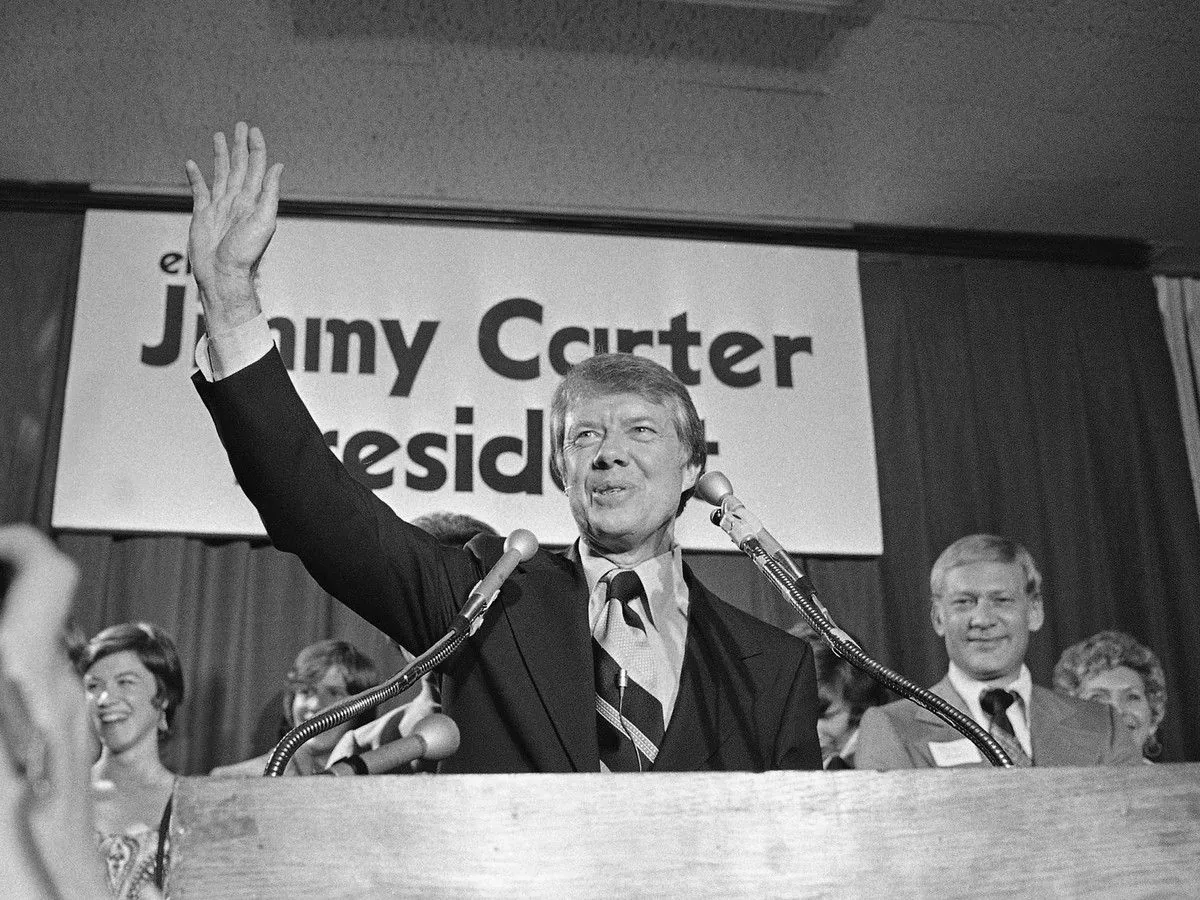Jimmy Carter: The Enduring Outsider in American Politics
As Jimmy Carter approaches his centennial, his legacy evolves from controversial president to respected humanitarian. His lifelong outsider status shaped both his political career and global influence.

Jimmy Carter's approaching 100th birthday marks a significant shift in public perception, from a criticized one-term president to a respected global humanitarian. This transformation reflects the complex legacy of a man who consistently positioned himself as an outsider in American politics.
Born on October 1, 1924, Carter is now the oldest living former U.S. president and the longest-lived in history. His journey from a peanut farm in Plains, Georgia, to the White House and beyond exemplifies a unique approach to public service that often put him at odds with the political establishment.
Carter's outsider status was evident from the start of his political career. In 1962, he challenged a local political boss to win a state Senate seat, foreshadowing his future clashes with established power structures. As Georgia's governor from 1971 to 1975, he became the first southern governor to openly call for an end to racial segregation, setting himself apart from many of his contemporaries.
His 1976 presidential campaign further emphasized his outsider image. Carter leveraged his distance from Washington and his Naval Academy background to present himself as an honest alternative following the Watergate scandal. This strategy proved successful, leading to his victory over incumbent President Gerald Ford.

Once in the White House, Carter's outsider approach continued to shape his presidency. He created the Department of Energy and the Department of Education, demonstrating his commitment to restructuring government. His most significant foreign policy achievement, brokering the Camp David Accords between Israel and Egypt in 1978, showcased his willingness to engage in unconventional diplomacy.
However, Carter's presidency also faced significant challenges. His relationship with Congress was often strained, and he struggled to navigate Washington's political and social scenes. The media's portrayal of him as a "country bumpkin" further reinforced his outsider status, sometimes to his detriment.
"He had some legislative successes, but he missed on some of his most ambitious proposals because he wouldn't always take command of negotiations with Congress."
Carter's post-presidency work through The Carter Center, founded in 1982, has perhaps been his most impactful contribution. The organization's efforts in global health, including nearly eradicating Guinea worm disease, and promoting democracy through election monitoring in 39 countries, have earned him widespread respect. In 2002, these efforts were recognized with the Nobel Peace Prize.
Throughout his career, Carter has authored 32 books on various topics, demonstrating his wide-ranging interests and commitment to public engagement. His long-standing practice of teaching Sunday school in his hometown church further illustrates his connection to his roots and values.
As Jimmy Carter approaches his centennial, his legacy continues to evolve. From his naval service to his presidency and humanitarian work, Carter's journey reflects a consistent commitment to his principles, often at the cost of insider status. This unwavering approach has ultimately contributed to his enduring influence on American politics and global affairs.


































